Robinia pseudoacacia
Black Locust
[ click on any image below to see larger version ]
Family:
Fabaceae
(Legume / Pea family)
Mid-Atlantic bloom time:
April - June
Mid-Atlantic fruit ripe:
July - November
Young Black Locust bark is smooth, brown and thorny.
As trees age, their bark becomes thick, deeply furrowed, scaly, and dark brown.
The wood of the Black Locust is very hard, easily split and rot resistant (owing to flavonoids in its hearwood),
characteristics which made it ideal for fence posts and rails.
This also makes it a preferred log for use as waterbars on trails or in other applications where wood will be in contact with soil.
It also makes an excellent firewood with a very high heat content, but is prone to 'spit' burning coals out in the room.
Black Locust has nitrogen-fixing bacteria in its root system, enabling it to grow on poor soils,
enriching and stabilizing the soil for later successional species.
The trees develop extensive root systems, with a radial root extent is about 1 to 1.5 times tree height.
It readily grows back from stumps when cut.
Black Locust seeds can survive in the soil for many (reportedly over 80) years.
The species name pseudoacacia means 'false acacia', given because of its similarity in appearance to the African Acacia tree.
In urban or ornamental settings, Black Locust may be confused with the very similar looking
Pagoda Tree (Styphnolobium japonicum) during non-blooming times.
The Pagoda Tree blooms in late summer, not spring.
31 July 2014
Manassas, VA
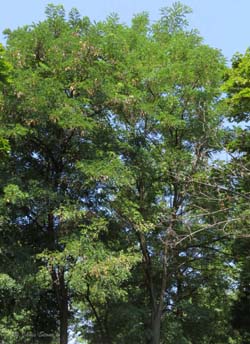
|
25 July 2014
Manassas, VA
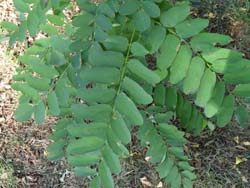
|
25 July 2014
Manassas, VA
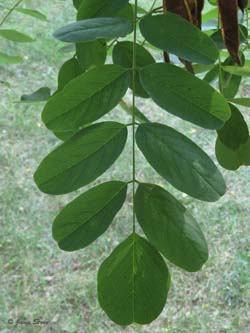
|
20 July 2014
Silver Lake Regional Park, Haymarket, VA
(showing characteristic 2 thorns at node)
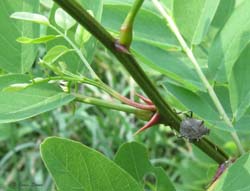
|
31 July 2014
Manassas, VA
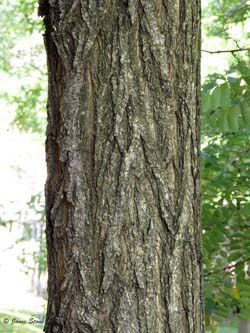
|
14 May 2015
Bull Run Mountains Natural Area Preserve, Haymarket, VA
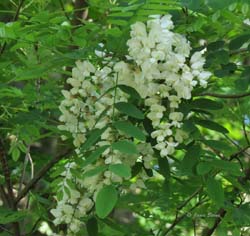
|
30 April 2016
Occoquan Bay National Wildlife Refuge, Woodbridge, VA
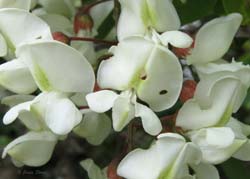
|
30 April 2016
Occoquan Bay National Wildlife Refuge, Woodbridge, VA
(with ripening seed pods)
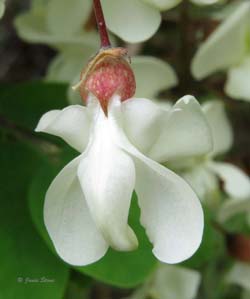
|
20 July 2014
Silver Lake Regional Park, Haymarket, VA
(with ripening seed pods)
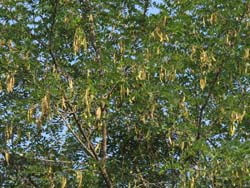
|
20 July 2014
Silver Lake Regional Park, Haymarket, VA
(ripening seed pods)
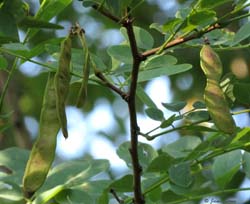
|
20 July 2014
Silver Lake Regional Park, Haymarket, VA
(with ripening seed pods)

|
25 July 2014
Manassas, VA
(ripe seed pods)
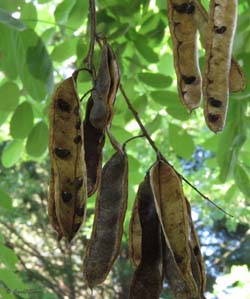
|
Return to list of flora











